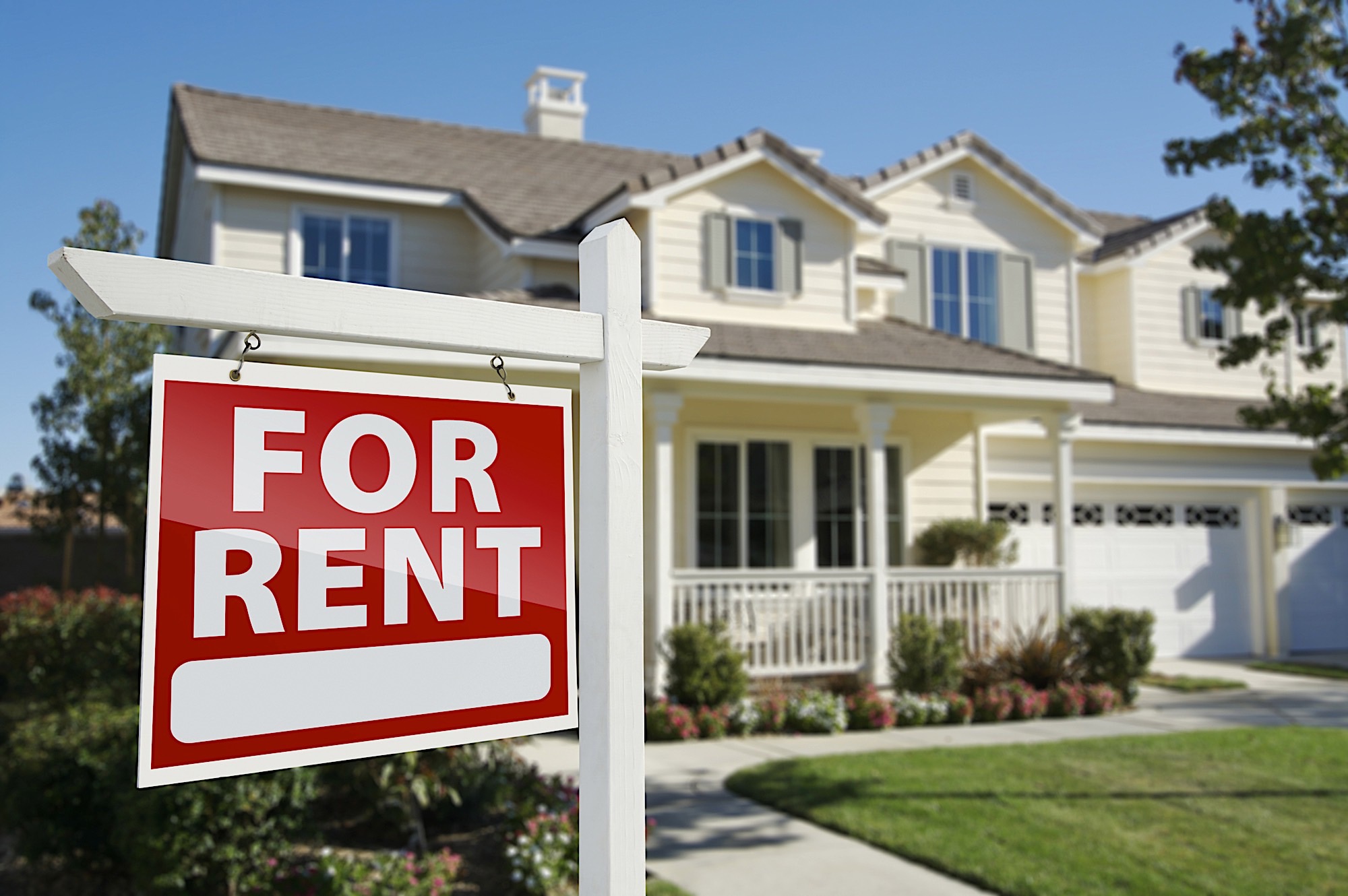People invest in rental properties for countless reasons and each rental property is different. Whether it’s a condominium in a city with numerous tenants or a vacation home that’s rented for only a few months of the year, owning rental property has its fair share of exciting advantages and unique challenges. At some point or another, it’s natural for rental property owners to ask themselves, “Should I sell my rental property?” Especially if the responsibility of maintaining the property has become too cumbersome, it’s a natural part of owning a rental property to one day consider selling it.
In this article, we’ll explore what makes a good rental property, as well as some of the signs that you should sell your property (or consider continuing to hold on to it). By understanding the market and evaluating the property with a focused lens, rental property owners can make sure they’re maximizing their investment.
What Makes a Good Rental Property?
To be able to properly determine if it’s best to sell or keep a rental property, you must first be able to identify how a successful rental property operates. Especially for those that are considering buying a rental property for the first time, there are many qualities of a good rental property that investors should look out for during the search. While the real estate market is constantly fluctuating, a rental property that is operating as it should will usually display a few of these common traits.
- Responsible Tenants
- Positive Cash Flow
- Desirable Location
- Property Appreciation
- Minor Upkeep
Should I Sell my Rental Property?
There are many benefits to investing in rental properties. But regardless of the many perks and the passive income it generates, there will come a time in any rental property owner’s life where they might consider selling the property. Especially in times of economic uncertainty, owning and managing a rental property can become very overwhelming and the return on the investment may not be immediately evident. This is why it’s suggested for rental property owners to keep a solid record of their investments, maintenance costs, and income generation to properly determine if the rental is still a worthwhile expenditure.
The hardest part about contemplating if you should sell or keep a rental property is choosing the right time to list the property on the market. Here are a few signs that it might be time to sell your rental property.
Maintenance Costs are Too High
Whether you’re managing a large apartment building or a small home, maintenance is a natural part of any property owner’s responsibilities. While some maintenance costs may be factored into a tenant’s monthly rent (lobby cleaning, snow shoveling, etc.), the majority of maintenance costs fall on the landlord to cover. Paying for contractors, turnover costs, and expensive repairs can all add up very quickly, and if the state of the property is degrading it’s easy for profits to be lost in the long run. Selling a run-down property is much harder than selling a well-maintained one, so understanding when maintenance costs are getting too high is important for determining when you should sell instead of holding on to the property.
Location Has Worsened
Many investors will purchase rental properties largely due to their location, perhaps within an up-and-coming neighborhood or near a popular vacation locale. Location is a huge part of any real estate transaction, and if you’ve noticed a rental property’s location has worsened it might be time to look elsewhere. Whether it’s crime rate, lack of popularity, or even sudden congestion of other rental properties in the area that are stealing potential profits, a rental property’s location should only serve to benefit the owner. Increases in local rental property regulations are another common reason why rental property owners may choose to sell. For example, some areas of the country have strict regulations on short-term vacation rentals such as Airbnb. Being forced to sell due to increased regulations or a bad location is never a good position to be in, so make sure to always be aware of the state of a property’s surrounding location.
Tenancy Issues
One of the biggest benefits of owning a rental property is the passive income that it can generate, but if the tenants create more issues than the investment is worth it could be a bad sign for the property’s profits and growth. Tenants play a huge role in the success of a rental property, mainly because without tenancy the property is at risk of stagnating on the market and potentially losing value. Whether it’s excessive damage caused by tenants, difficulty filling vacancies, or simply issues with tenants paying their rent, the profit gained from managing difficult tenants will eventually dwindle. If tenants are a huge issue among others, it might be best to consider selling the property.
Property’s Value Has Fluctuated
Anyone looking to make a smart investment in a rental property will understand the importance of getting the most value out of the purchase. A rental property’s value will fluctuate frequently throughout owning it, and evaluating these peaks and valleys is crucial for making an educated choice in owning a rental property. It might be that a rental’s location has suddenly boomed and the property is now valued at a much higher value, allowing the owner to sell the rental property at a much higher price than their initial investment to cash out their equity. It could also be the case that the property has massively depreciated and the owner should sell to avoid tanking their profits. A rental property’s value will always be a reflection of current real estate market trends, location, and specific property needs, and understanding the value of the property is a natural part of owning it.
Get a Cash offer for your Rental Property. Click Here to get a no-obligation offer today!
Should I Keep my Rental Property?
While it’s natural to eventually sell a rental property, timing is often the most important factor when contemplating if you should sell or keep a rental property. Selling prematurely can be a very bad decision. Especially if a rental property is running successfully with reliable tenants and low upkeep, it might be best to simply leave a good thing alone for the time being. If you haven’t been forced to consider if you should sell a rental property, it’s likely still a lucrative and worthwhile investment. Let’s explore some of the major reasons you should keep a rental property and consider holding out for the long-term benefits.
Long-Term Equity and Profit
The housing market and state of the property’s mortgage are what will ultimately determine a property’s selling price, and the housing market continues to grow. This has caused rent prices to increase, which has led to larger returns and extra cash flow for rental property owners in recent years. This can generate long-term profits, especially for those that rent out their property for a price that fully covers the mortgage payment and operating costs.
Cash Flow
If tenants are consistently making their rent payments and operational costs are minimal, rental property owners can benefit from passive cash flow that can help them make additional investments outside of the one rental property. Landlords are also able to rely on annualized tax benefits, potential appreciations, and refinancing options that can help maximize profits and combat occasional shortfalls.
Avoid Losses in Poor Market Conditions
If the real estate market conditions are poor, it might not be the most lucrative time to sell. A huge benefit of owning a rental property is the protection it provides against inflation. Rental properties are an incredibly valuable asset and investment during times of high inflation and typically gain value at this time. Renting during any economically difficult period is a nice form of cash flow because housing and real estate is a 24/7 industry. While there may be challenges in managing the property during times of poor market conditions, selling during this time could potentially result in a hefty loss of potential profits and appreciation.
Sell or Keep Rental Property Calculator
When wondering if it’s the best choice to sell or keep a rental property, it’s helpful to have a general guideline of what you should be looking for in a return on investment. As we’ve covered, a rental property needs to generate positive profits from the investment of purchasing and maintaining the property. Being able to accurately determine the financial performance of the property can be a bit more complicated, so having a general rental property formula for calculating profitability is helpful.
Cap Rate
Cap rate is a simple calculation used by rental property investors to learn a property’s profitability. It’s calculated by taking the net operating income, or gross rental income minus property expenses, divided by the property’s purchase price. To get this percentage, landlords need to have a firm understanding of their property’s annual expenses to get an accurate snapshot of a property’s performance. These expenses include everything from property taxes and insurance fees to maintenance and management costs, but all play a huge role in calculating the cap rate of a rental property. Subtract these expenses from the annual income collected from renters to get the net operating income.
Cap Rate = Net Operating Income / Purchase Price
Ex: Susan purchases a rental property for $200,000. The gross annual rental income is $24,000 with $10,000 in annual expenses, creating a net operating income of $14,000. By dividing $14,000 by $200,000, Susan will end up with a cap rate of 7% for her investment.
The higher the cap rate, the better the property is performing. Keep in mind, the cap rate for any property will constantly fluctuate based on the property’s needs and market conditions. Buying a property for a low price and renting it out for a high one or gradually increasing rent prices over time can increase a property’s cap rate. Cap rates will vary largely based on location, but if the cap rate is lower than usual for the area and neighboring competition, it might be time to sell for renters looking to maximize their investment.
CT Homes Specializes in Selling Rental Properties
Whether your rental property is underperforming or you simply wish to move on to something different, it’s normal to occasionally ask yourself, “Should I sell my rental property?” By knowing how to properly calculate a property’s performance and identify the signs of a successful and care-free rental property, owners can more easily gauge if they should sell or keep a rental property and make the choice that will support their long-term goals.
When it comes to determining if you should sell or keep the rental property, it helps to have a simple option for selling that won’t demand an overwhelming amount of time, stress, and energy. CT Homes can help sell your rental property with a streamlined process that gets your property sold and owners paid quickly. From handling tenant affairs to taking on maintenance needs, CT Homes experts have the skills and expertise to help. Learn more about how CT Homes can help rental property owners sell their property and move on to the next great investment.
Still undecided about your rental property? Get a cash offer option today!






